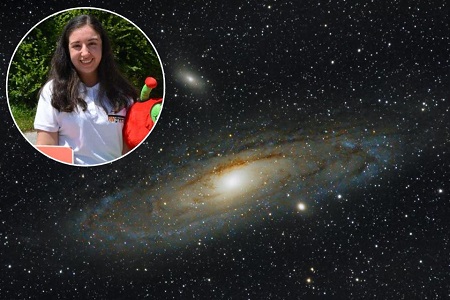
Register with Plumtri!
Register on plumtri as an Individual or as an Organisation to gain access to all of its useful features and remain updated on the latest R&I news, events and funding opportunities.
-
 Welcome to plumtriA platform for Research & Innovation
Welcome to plumtriA platform for Research & Innovation -
 Register today to start receiving our monthly newsletter
Register today to start receiving our monthly newsletter -
 Looking for Funding?Check out the current open calls
Looking for Funding?Check out the current open calls -
 Looking to partner up?Search our list of registered profiles
Looking to partner up?Search our list of registered profiles -
 You have questions on a particular funding programme?
You have questions on a particular funding programme?
Maltese student wins European Space Agency contest with cosmic detective work

A Maltese student has won an award for a theoretical space mission that aims to identify the possibility of life on planets outside Earth’s solar system.
Taking part in an annual summer school organised by the European Space Agency (ESA) and the Austrian Research Promotion Agency in Austria, University of Malta research support officer Maria Aquilina formulated a plan to discover which planets can host life.
“It’s like detective work. You are searching for a needle in a cosmic haystack,” Aquilina said as she and a team had to create a unique mission proposal in under two weeks.
In July, Aquilina attended an 11-day summer school that saw 60 participants from across Europe take part in an intense and competitive course, splitting the group into four teams for each to create their own mission.
It was Malta’s first appearance at the annual ESA Alpbach Summer School and was funded by the Malta Council for Science and Technology.
The course focused on exoplanets – planets outside the Solar System. Participants were taught about the extraterrestrial objects during the day while the evenings were reserved for groups to research and outline their mission, she said.
Like writing a scientific paper, Aquilina and the team of 14 other European scientists, mathematicians and engineers were challenged with finding a gap in the topic to explore.
The work heavily focused on the probability of finding clues of life rather than life itself. “For example, trace compounds possibly left behind by living things,” Aquilina said.
Since the closest exoplanet to Earth, Proxima Centauri b, is just over 4.2 light years away, Aquilina and the team were forced to figure out how to characterise these alien atmospheres.
“You can’t see exoplanets, so how do you detect them? You launch a great big eye in the sky.”
The theoretical mission involved launching a telescope into space to view the distant planets.
The satellite would be able to record levels of UV light found in an exoplanet’s atmosphere which could indicate the presence of certain chemical reactions that may be fundamental to the birth of life, Aquilina argued.
With many exoplanets to look at, the team limited their work to planets found in habitable zones where water is able to exist as a liquid, a necessary element for carbon-based life.
Although the mission was not a real proposal, all reports and research were held to industry standards, with all the work leading up to a final hour-long presentation in front of a jury of astronomical experts.
Jury members picked apart elements of the mission to check its viability. “These people would literally grill you,” she recalled.
In Aquilina’s case, the jury focused on the large price tag of the mission, some €1.6 billion, which Aquilina had to defend – she had to explain why such a cost is in humanity’s interest.
With mountains worth of technology and systems needed to put the telescope in space and to keep it in orbit, it was Aquilina’s role to fend off the jury’s inquisition and communicate its importance, as the money would theoretically come from the pockets of taxpayers.
“Some people say this is a waste of money.”
“They say that we should invest the money in health, but health takes a lot from the space industry,” she said, noting one historical example: dialysis machines used to filtrate blood were originally used as a water filtration system on the International Space Station.
Thanks to her efforts, Aquilina’s team won the award for best mission presentation which, in a real-world scenario, would mean their mission is the most likely to be selected despite its high price, she said.
What is life?
During the course, Aquilina was able to meet and learn from industry experts, such as Austrian physician Carmen Possnig, who was selected as a reserve astronaut by the ESA in 2022.
The course makes you appreciate the cooperative effort required for a mission to succeed,” Aquilina said, emphasising that such projects require international collaboration.
Yet, despite all the research, Aquilina noted that astrobiology, the study of life in space, is limited to our current understanding of life.
Humanity has philosophised the existence of exoplanets since pre-Socratic times, yet the first exoplanet was only discovered thousands of years later in 1995. In the meantime, philosophers and astronomers were burned at the stake for theories of extraterrestrial life until technology could prove their probable existence, Aquilina said.
“Every time humans have said something was not possible, nature comes around and proves us wrong,” she said, adding that although it may take a thousand years, humanity eventually gets there.
“Life, anywhere, is a thermodynamic miracle.”
